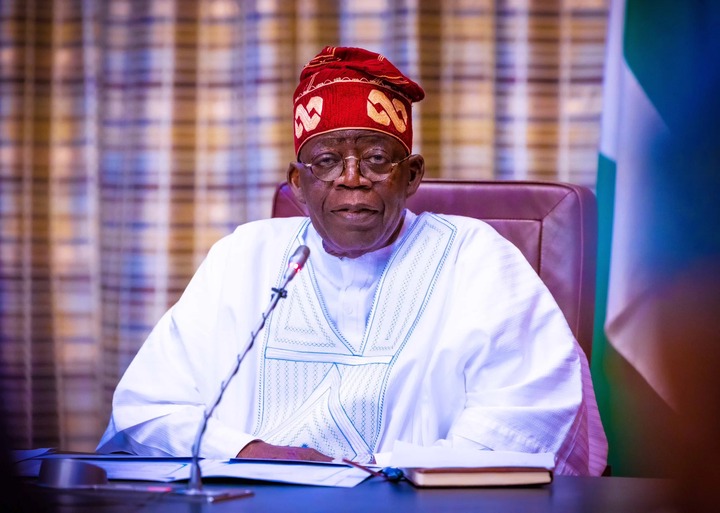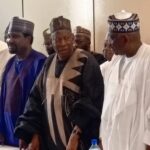Delivered on his behalf by Vice President Kashim Shettima, New York, September 2025
Mr. President of the General Assembly, Mr. Secretary-General, Excellencies, Distinguished Delegates, Ladies and Gentlemen,
It is a great honor for me to stand before this august Assembly on behalf of His Excellency, President Bola Ahmed Tinubu, and the people of the Federal Republic of Nigeria. We gather at a time of profound challenges and urgent responsibilities for our shared humanity. Yet, we also gather with the enduring hope that the United Nations, as the custodian of multilateralism, can continue to serve as the platform for cooperation, peace, and justice in our world.
Commitment to Multilateralism
Nigeria reaffirms its unshakable faith in the United Nations as a vital institution born out of humanity’s desire to prevent chaos, heal divisions, and chart a path to redemption. But faith alone is not enough; relevance must be earned. For the UN to fulfill its founding promise in a world changing at unprecedented speed, it must evolve. It must adapt. And it must reflect the realities of today rather than the power structures of yesterday.
Call for UN Security Council Reform
It is in this context that Nigeria once again calls for comprehensive reform of the United Nations system, beginning with the Security Council. Africa, a continent of 1.4 billion people, remains without permanent representation on this Council. Nigeria—home to over 236 million people, a pillar of regional stability, a consistent contributor to global peacekeeping, and Africa’s largest democracy—makes a legitimate case for a permanent seat. This is not a plea for privilege; it is a demand for fairness, inclusivity, and recognition of our shared humanity.
Sovereign Debt Relief and Trade Access
Excellencies, the global financial architecture continues to weigh unfairly on emerging economies. Unsustainable sovereign debt burdens and unequal access to trade and finance perpetuate cycles of dependency and underdevelopment. Nigeria calls for urgent action: the establishment of an international mechanism to manage sovereign debt transparently and equitably. Nations must be given the space to grow beyond being mere exporters of raw materials. Trade must open doors to innovation, technology, and industrial capacity.
Mineral Wealth for Host Nations
This is especially true for nations rich in critical minerals, upon which the future of renewable energy and digital technology depends. For too long, resource wealth has been a curse rather than a blessing. Nigeria insists that local communities and host nations must be the primary beneficiaries of their natural endowment—through local processing, industrial investment, and the creation of jobs. Only then can we reduce the inequalities and conflicts that resource exploitation often brings. Our own history in the Niger Delta stands as a lesson and a warning.
Closing the Digital Divide
But development today is incomplete without digital inclusion. The digital divide is the new global inequality. Entire nations and generations risk being left behind if access to technology remains uneven. Nigeria therefore calls for a global initiative to bridge this gap—an initiative that will expand equitable access to information, connect schools and rural communities, and ensure that technology serves as a force for opportunity rather than division. For Africa, this is not a luxury but a lifeline.
Peace and Human Rights
Excellencies, Nigeria’s voice is also clear on peace and human rights. We reiterate our unwavering support for a two-state solution to the Israeli-Palestinian conflict. Gaza belongs to the Palestinian people, and their right to dignity, security, and statehood must be respected, just as Israel’s right to live in peace must be guaranteed. We condemn the continuing violence in Gaza and across the Middle East, and we call upon nations with influence to rise to their responsibility.
At home and abroad, Nigeria remains committed to strengthening democratic institutions, promoting tolerance, and upholding civilized values. Peace cannot survive where justice is absent, nor can democracy thrive where human dignity is denied.
Climate and Economic Challenges
Equally pressing is the climate crisis. For us in Africa, climate change is not an abstract debate—it is a lived reality that threatens security, agriculture, migration patterns, and the very fabric of our societies. Nigeria calls for climate finance that works—not in endless bureaucracy, but in concrete action. Investments must be directed to education, resilient housing, renewable energy, and access to technology for the most vulnerable. Climate justice is inseparable from human justice.
Our economic reforms at home are aimed at building resilience, despite the short-term hardships they bring. As demonstrated at the recent West Africa Economic Summit, we believe in regional solutions, in leveraging shared strength, and in placing people at the heart of policy.
Peacekeeping Legacy and Security
Mr. President, peace is not merely the absence of war; it is the presence of justice, ideas, and values. Since independence, Nigeria has been at the forefront of UN peacekeeping—participating in 51 out of 60 operations. We continue to make sacrifices in the fight against insurgency and terrorism in our region. Yet we know that military solutions alone are insufficient. For peace to endure, we must cultivate cooperation, dialogue, and shared prosperity.
Conclusion
Excellencies, the time has come to renew the promise of multilateralism. The time has come for reform that reflects fairness. The time has come for action that restores dignity to the vulnerable and hope to the marginalized. Nigeria pledges its commitment to these ideals, confident that when nations act in solidarity, humanity is uplifted.
On behalf of President Bola Ahmed Tinubu and the people of Nigeria, I thank you.
God bless you all. God bless the United Nations. God bless the Federal Republic of Nigeria.





